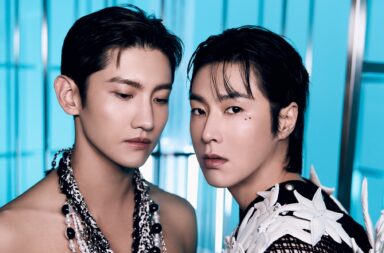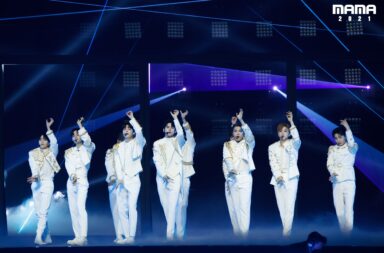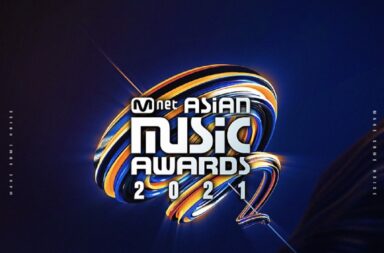 Welcome to another Seoulbeats Roundtable!
Welcome to another Seoulbeats Roundtable!
The end of the year always brings typical reviews of the year’s music, news, and any other exciting features. There are also those yearly awards shows where fans repeatedly vote for their favorites or stay up all night watching to see who will nab the most noteworthy award. For 2014, the Melon Music Awards and the Mnet Asian Music Awards are two of such shows that have already come to pass.
One of the most controversial aspects of these shows is who actually merits these awards. Each show tries to minutely differentiate themselves based on the percentage allotted to sales, votes, and mysterious judges — but what is the best way to really determine who deserves the coveted titles of Best Album, Song, Artist, or even just being a nominee for one of those categories? So this week’s question is:
If you could structure the judging standards for an awards show, what criteria would you include, with what weight, and why?
Adri: For me, I’d like to see more social media conversations taken into account. Metrics like total buzz, total mentions, trending tag, or net sentiment actually feels more authentic than total sales which have been hit by sajaegi scandals. I heard that even election campaigns nowadays have started using social media stats to formulate campaign messages. So if politics can do it why can’t the music industry?
I think the ideal formula would be 40% total sales (physical and digital) + 30% Share of social media buzz + 30% Share of social media sentiments.
 Gaya: Honestly, I don’t like how sales are such a big part of award show criteria. It feels like there is too much focus given to the commerce of it all. I would set a sales figure (physical + digital) that acts would have to surpass in order to be eligible for nomination. After that, sales no longer matter and other factors come into play. We’ll have our judges for sure, but also social media buzz and online voting.
Gaya: Honestly, I don’t like how sales are such a big part of award show criteria. It feels like there is too much focus given to the commerce of it all. I would set a sales figure (physical + digital) that acts would have to surpass in order to be eligible for nomination. After that, sales no longer matter and other factors come into play. We’ll have our judges for sure, but also social media buzz and online voting.
I would also like to introduce an additional category: idol voting. Idols have enough on their plate as is, I agree, but idols should be allowed the chance to reward their peers. To make it fair, each group would get one vote.
So, my breakdown for determining winners from nominees would be: 35% judges’ scores + 15% Social media buzz + 15% Online voting + 35% Idol voting
Willis: I kind of like the structure of the Korean Music Awards. I personally give more credence to awards that are allocated based off a panel of professionals from the industry rather than popular vote — where award shows take sales and fan votes as a factor. I get that fans want to see their favorite idols receive honors, but it seems redundant to keep giving accolades to those who already have the highest sales and largest fandom voting power.
Having a bunch of award shows ends up being a positive for me because even if I prefer a different criteria for allocating awards, there is a large group of fans who would like to see their favorites win. The K-pop industry is good about capitalizing on that demand by engaging fans with the mobile/social/online voting factor. The more fandoms feel invested in an opportunity to grant their favorite idols with one of the highest honors of the year, the more these shows get in terms of ratings and/or relevancy.
P.S. I second Gaya’s idol voting category with the stipulation that idol votes are made transparent to the public (we can’t have voting manipulation in this category)!
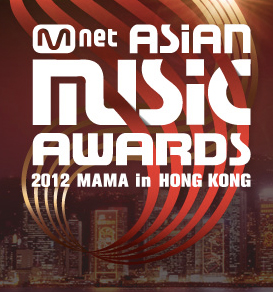 Laverne:Making idol votes transparent would be opening up a huge can of worms. And on top of that, how would you decide which idols got to vote? All? Only veteran idols? What about singer that aren’t considered idols?
Laverne:Making idol votes transparent would be opening up a huge can of worms. And on top of that, how would you decide which idols got to vote? All? Only veteran idols? What about singer that aren’t considered idols?
That said, I don’t have a perfect solution myself and the idol voting is an interesting angle that could produce buzz for the awards ceremony. I like Gaya’s breakdown for determining winners from nominees.
But I do have to ask, why so many awards shows? As someone who doesn’t see the appeal of awards shows, I don’t understand why there are so many and why they differ so much in terms of how they choose winners. Writers, which awards shows are you partial to?
Lo:For me, I don’t like either Asian or Western awards shows. Sales and voting turns everything into a popularity contest. Here in the US the Emmys, Oscars, Grammys, etc, are decided by industry insiders, who often get political over critical, i.e. action movies never get nominated even if they have the best performances, The Dark Knight was damn near flawless, but the only nomination it got was Heath Ledger, and that is because he died.
I feel awards should be based on reviews and critics. Critics review films, dramas and albums for a living. Any halfway decent critic understands that something not being their cup of tea does not make it bad. In my ideal award show, Album of the Year would go to the album with the best reviews, period. Artist of the year, the highest average reviews. That way, it’s about quality.
Mark: Are you saying we should be on the judging committee? Because that would be awesome! In the likely event that does not happen, however, we still have our end of the year panels.
Chelsea: This may sound counter-intuitive, but I never watch the award shows for the awards. I think the broadcasts are fun because they’re more like extended special stages with lots of group interactions and occasional acknowledgements. Because of that, I think it’s fine that some are nothing more than glorified popularity contests.
I agree with Willis that the social/fan factor is important. Fans should feel like they have some agency in their favorite idol’s success. At the same time, power should also be given to music professionals/insiders and total sales. Between all the various Korean music award shows (because there are so many), these factors are all acknowledged somehow. Some shows reward popularity (MAMA, Seoul Music), some reward sales (Golden Disk, Melon, Gaon) and some reward for quality (Korean Music Awards). While it’s annoying that there are so many awards broadcasts, they each serve a purpose.
My ideal awards show would be one broadcast that broke down awards by tiers of judging criteria. For example: Industry Pick for Best Artist, Fan Pick Best Artist, Highest Sales, Etc. Then there would be the highest tier of awards (like simply “Artist of the Year”) that would be judged by a combination of those factors: 40% Sales 30% Fan Vote, 30% Professional Panel.
But that’s just because then I would only have to sit through one exceptionally long ceremony as opposed to six four hour ones.
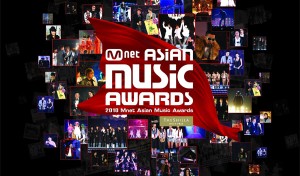 Gaya: I’m with Laverne on making idol votes transparent. Not only will we end up with many fans mindlessly following what their bias group does instead of making the decision for themselves, it’ll also open idols up to a level of scrutiny that may be undeserved. After all, individual fans are lost among the larger fandom and we hardly know who the judges are a lot of the time. Idols are the most publicly visible and individually noticeable group, and making their votes transparent would only make life harder for them.
Gaya: I’m with Laverne on making idol votes transparent. Not only will we end up with many fans mindlessly following what their bias group does instead of making the decision for themselves, it’ll also open idols up to a level of scrutiny that may be undeserved. After all, individual fans are lost among the larger fandom and we hardly know who the judges are a lot of the time. Idols are the most publicly visible and individually noticeable group, and making their votes transparent would only make life harder for them.
As for deciding which idols got to vote, I was thinking of starting off with a committee of some sort with which idol acts could register, and the committee would be responsible for collecting the votes… But I am worried that the head honchos might see through this plan to subtly unionize idols.
But ultimately, I just think that idol deserve more chances to exercise their agency as well, especially when it comes to gaining recognition for their work. Other industries do it too, so why not idoldom?
Hania: I automatically get suspicious of these mysterious ‘expert judges’ that have a say in some of these awards. I end up imagining that there’s some sneaky negotiations going on behind the scenes, with these experts pulling the strings in favor of one particular entertainment agency. However, it is still important to get the views of people who aren’t blinded by delusional fan love, such as these critics and expert judges, so in this case, a balance needs to be struck.
I love Adri’s idea of including social media buzz! It’s a great way of incorporating public opinion without requiring people to spend loads on CDs in order to have their thoughts included. It can also hopefully circumnavigate some of the fan mania that comes with voting, getting a more ‘natural’ reflection of public attitudes towards idols.
For me, the ideal award show with be a mix between the MAMAs, the Seoul Music Awards and the Korean Music Awards. It’d be great to have some sort of People’s Choice Award as well, like the Netizen’s award at the KMAs, so that fans do feel like at least one award is completely in their hands.
The ideal breakdown for me is 25% critics/industry insiders, 30% social media buzz, 15% sales, 30% votes. To me, this gets close to striking the balance between professional opinion, and fans’ desires. But at the same time, it can be great to have such different models of determining winners for each award show. Idols are being rewarded for different things at each award show, and are therefore able to gain a well-rounded insight into their position in the industry, how their peers view them, and how much they are loved by fans.
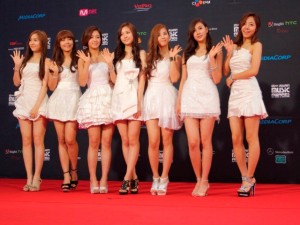 Nick: I personally am all in favour of sales rankings, especially Gaon’s digital streaming – I think it’s the most accurate representation of what is really popular, since it’s what people are listening to the most. Of course, it still shuts out all the international fans who don’t get their streaming accounted for, and it only measures popularity and not quality, which are two totally different things. That’s why for quality, I really like Gaya’s idol voting idea! An industry vote-based show, or at least a category, is something I definitely agree with – it could become something of a Korean Grammys, which is based on industry vote if I remember correctly.
Nick: I personally am all in favour of sales rankings, especially Gaon’s digital streaming – I think it’s the most accurate representation of what is really popular, since it’s what people are listening to the most. Of course, it still shuts out all the international fans who don’t get their streaming accounted for, and it only measures popularity and not quality, which are two totally different things. That’s why for quality, I really like Gaya’s idol voting idea! An industry vote-based show, or at least a category, is something I definitely agree with – it could become something of a Korean Grammys, which is based on industry vote if I remember correctly.
I like the social buzz idea and think it should be incorporated, but I’m skeptical of how accurate a portrayal it would be of true authentic netizen sentiment. Would it work by tracking keywords like the artist name, song, or a hashtag? Because these methods are already highly gamed by fandoms: many fans have gotten their Twitter accounts temporarily suspended for tweeting the same hashtag over and over again (definitely not including me, and definitely not for #EMAzing EXO last year).
Some music shows factor in social media to their weekly rankings; SNS Score counts for 35% on Inkigayo, for instance. This takes in everything from Facebook shares to Twitter retweets to YouTube views. A lot of the time, people share or retweet the MV because they are genuinely interested in sharing the song with their friends, but as with anything fandoms will tend to work it in their favor, and an army of fans could far outnumber any casual social media interaction. That being said, it would be more difficult than mindlessly voting every day, but it’s I think something to take into consideration.
Irteqa: If awards were apportioned to artists and groups on the basis of creative or thematic aspects, that would be ideal and would probably motivate me as a viewer to tune into awards shows more. I’m not too familiar with awards programs, but it looks like MAMA, Gaon, or Melon select winners solely fixed on how well they sell, whether or not they are selected by a panel of “professionals,” or simply as extensions of the views of netizens. Because of these agendas, I stick around to watch awards programs because I find it fascinating to see how idols interact with fans and each other. The commercial undertone of it all makes it difficult to enjoy without knowing there are certain factors that contribute to artists becoming winners.
At the same time, I think it’s beneficial that there are so many different awards shows. As viewers we get to see the strategies and tactics that these programs employ in order to separate themselves from one another. It becomes clear who is doing good and who is doing not so good. The question is, what strategy prevails?
Personally, I would like it if there was an award show that created a collaborative panel that combined criterion like sales (30%), social media buzz (40%), and professional opinion (30%). Social media obviously outnumbers by a little because it is evident that social media is taken up by fans, and without fans, artists would not be as popular or beloved as they are. Each of these criterion would find commonalities and choose winners in an all-encompassing and considerate way. Ideally, and maybe because I am unfamiliar with the realities of awards shows, my lone criteria for who should be the winner of each respective category would be based on the most original and un-recycled concept with accompanying promotions (concerts, appearances, signings, etc.)
 Johnelle: Award shows are always a hit or miss because how exactly do you judge something like music? It’s meter, it’s rhyme, the quality of its lyrics, how it makes you feel? Everyone’s taste is different, so a song that one person loves, another might hate and so on. It’s always been that way for any type of awards show.
Johnelle: Award shows are always a hit or miss because how exactly do you judge something like music? It’s meter, it’s rhyme, the quality of its lyrics, how it makes you feel? Everyone’s taste is different, so a song that one person loves, another might hate and so on. It’s always been that way for any type of awards show.
But, if we must have award shows and it were up to me, I would start with meaningful categories. I say this because pop really shouldn’t be measured against, indie, rock, folk, rap, etc. So for each defined genre of Korean popular music, categories like best song, best live performance, best MV, by group, individual, etc.
For each genre there should be a group of professionals allowed to vote for that category made up of critics, composers, lyricists, sound engineers, etc for each genre–if those professionals do work in more than one genre there is a possibility that they can vote in more than one genre’s categories. These votes would be worth 34%.
The next voting body per genre, would be the peers of each genre; so all members in a pop group get one vote, individuals, duos, etc. To be able to vote, you also must be active in that category. I believe voting should be anonymous–hopefully then the individuals can vote freely, not company influenced, and NOT have to worry about any backlash from netizens about who they voted for. These votes would be worth 33%.
The last 33% would be split up into three subcategories: 11% based on physical sales, 11% based on digital sales, and 11% based on radio play and social media buzz. I don’t mind fan voting, but a lot of the time it is just not fair with fandoms fighting over cheating and whose bias is better
Monique: My ideal criteria would be a 35-35-30 split between digital sales and similar forms of consumption (noraebang rankings, ringtone sales), physical album sales, and judges’ votes concerning quality and musical significance. Social buzz gives too much leeway to flash-in-the-pan groups, and fan votes often skew the results in favor of the boyband flavor of the week/month/year. Digital sales and the like are a great indicator of popularity among casual fans/the public at large, and physical sales are a great indicator of fandom strength. Though we can’t account for quality (or sales manipulation) when it comes to album sales and digital downloads, judges’ votes would balance everything out, assuming they aren’t on a major label’s payroll.
The separation of digital awards and physical awards is something that will always anger fans. Digital awards often go to musicians with strong public followings and weak fandoms (causing confusion on one end of the spectrum), while physical awards often go to musicians with little relevance to the general public and unusually fervent fandoms (causing ire on the other end of the spectrum. See: EXO winning anything.) Ideally, I’d fuse these sales and add in a panel of judges to find the ultimate all-around artist, group, song or album.
Though its criteria is radically different from my own, I respect the structure of the Korean Music Awards. The panelists and organizers give a platform to indie and alternative artists that rarely, if ever, promote on music shows or join the variety circuit. The Korean music industry is relatively small, with the indie and alternative scenes taking up a fraction of that pool, so it’s great to see an awards show that thumbs its nose at sales and public hype.
 Andrea: In general, I have a distaste for music award programs. For me, awards programs, especially those like MAMA, lean more to rewarding the latest trend idol or the ones with the biggest fandom/label backing. If you are going to reward someone for out-selling everyone, then fine, but there’s no need for it to be a major production or anything.From my perspective, award shows are just publicity machines to gain revenue for both the organizers and artists and serve little purpose in awarding those who deserve high praise for the efforts.
Andrea: In general, I have a distaste for music award programs. For me, awards programs, especially those like MAMA, lean more to rewarding the latest trend idol or the ones with the biggest fandom/label backing. If you are going to reward someone for out-selling everyone, then fine, but there’s no need for it to be a major production or anything.From my perspective, award shows are just publicity machines to gain revenue for both the organizers and artists and serve little purpose in awarding those who deserve high praise for the efforts.
I don’t really have an ideal criteria for awards, because most configurations will lead to some group being unhappy. I do wish for fan voting to matter as little as possible. Like Monique said, fan voting and buzz leads to problems. Throughout my time listening to K-pop, the drama that occurs when award season rolls around is rather sickening — people cheating the system, fan wars, etc.
I do think expert panels and opinions should carry greater weight, if you can ensure no back-room deals and true impartiality. I want quality music to be rewarded, regardless of labels, genre, or image. From what I’ve seen, the Korean Music Awards does seem to do the best job at this.
Readers, how do you think the awards shows should be scored?
(CJ E&M, MBC Plus, JTBC, KBS Joy)
